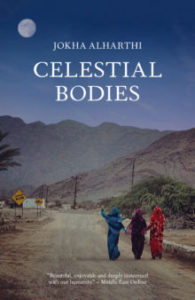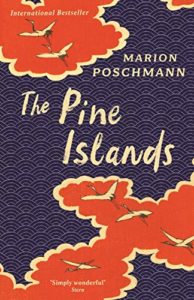
Just minutes ago at Somerset House in London, the shortlist for the Man Booker International Prize—which celebrates the finest books in translation from around the world—was announced.
First introduced in 2005 as a complement to the Man Booker Prize, the prestigious award is given annually to a single book in English translation (having previously been awarded every two years to a living author of any nationality for a body of work published in English or generally available in English translation), with a £50,000 prize for the winning title, shared equally between author and translator.
The six books on this year’s shortlist have been translated from five different languages, hailing from five countries and three continents. The list is also made up almost entirely of female translators and authors, including acclaimed Polish writer Olga Tokarczuk (who took home the 2018 award for her acclaimed novel Flights).
The winner will be announced at the Hay Festival in Wales on Saturday, May 25.
Congratulations to all of the shortlisted authors!
*
Drive Your Plow Over the Bones of the Dead by Olga Tokarczuk, Trans. by Antonia Lloyd-Jones
“his mixture of graphic realism…and broad speculation are characteristic of the style of Olga Tokarczuk, one of the most distinctive and original voices in contemporary European literature … Tokarczuk’s singular achievement is to show how the marginalised, the disregarded, the despised have access to ways of knowing that are outside the perimeters of conventional thinking … Like her heroine, who sees everything as connected to everything else and every event bound up by a ‘complex cosmos of correspondences,’ Tokarczuk has a compelling capacity to seek out parallels or juxtapose stories or experiences that constantly draw the reader off trail … Tokarczuk has every reason too to be grateful for the linguistic friendship of another translator Antonia Lloyd-Jones who has once again done a remarkable job of capturing the uncanny distinction of Tokarczuk’s prose in English. There is much to admire in this book and even more to learn.”
–Michael Cronin (The Irish Times)
The Years by Annie Ernaux, Trans. by Alison L. Strayer
“This is an autobiography unlike any you have ever read; you might call it a collective autobiography … Change happens so imperceptibly that only big events like the collapse of the Berlin Wall or 9/11 allow us to establish a ‘before’ and an ‘after.’ Closer to home, photographs set a time line, as do family holidays, and both are used as markers throughout the book. But because everything, no matter how obscure or distant, is now available on the internet, we inhabit ‘the infinite present’ … Ernaux is always trying to envisage the book she will write—this very book we are reading, in a fluent, idiomatic translation by Alison L. Strayer … The Years is an earnest, fearless book, a Remembrance of Things Past for our age of media domination and consumerism, for our period of absolute commodity fetishism.”
–Edmund White (The New York Times Book Reviews)
The Shape of the Ruins by Juan Gabriel Vásquez, Trans. by Anne McClean
“…[a] clever, labyrinthine, thoroughly enjoyable historical novel … Ironic one moment, earnest the next, Vásquez presents himself as the central character of his own book. We learn about his career as a novelist, the state of his marriage, the birth of his daughters; we learn to be uncertain about what is fiction and what is not, what’s history and what’s debatable … Even at their most grotesque or bloodstained or slyly comic, these anecdotes and observations retain their humanity. Vásquez assembles them into a discursive, mischievous autofiction, combining forensic medicine with hearsay, revealing a third-hand source behind a first-hand account, setting public memory against private, chatter against documentation, until The Shape of the Ruins is less an album of stickers than a comprehensive critique of conspiracy aesthetics.”
–M John Harrison (The Guardian)
The Remainder by Alia Trabucco Zerán, Trans. by Sophie Hughes
“…intelligent and immersive novel, skilfully translated … Zerán’s elegiac novel deals less in narrative than sensation, and the loss or lack thereof … Though both surreal and captivating, the plot of this novel feels largely secondary to the cathartic experience of reading it … The reader is repeatedly stalled in their attempts to build up a coherent narrative of the characters’ past … The reader, too, is almost intoxicated, not by Paloma exactly but by this rhythmic fixation … Zerán seamlessly alternates between the voices of Iquela and Felipe, highlighting the opposing and gendered ways they have reacted to the circumstances of their childhood … The Remainder could be framed as a road-trip novel, but it is anything but expansive in its scope. Scenes take place almost exclusively in confined spaces … There is no true resolution in The Remainder, but that does not diminish the work … we leave feeling more aware of our limits, our past and our interior life.”
–Rose Alana Frith (The Times Literary Supplement)

Celestial Bodies by Jokha Alharthi, Trans. by Marilyn Booth
“…a densely woven, deeply imagined tour de force that follows Omani families between the 1880s and the early years of the 21st century … While the novel is historical fiction, it does not follow an easy trajectory from ‘tradition to modernity’ or ‘local to global.’ The book scorns romanticised history and happily-ever-afters. Individual characters are often taunted when they use romance as a way of understanding the world…Celestial Bodies never actually gets to the “ever after”. Instead, it continually re-evaluates both present and past. And while the book doesn’t tell us how things turn out, it skilfully builds suspense by creating “Aha!” moments as characters come to better understand their pasts … The translation does not coddle the reader who may be afraid of foreign words. Booth embroiders the text with the sound of Arabic wherever possible, maintaining rhythm and even rhyme, as well as the crackle and pop of the book’s humour. Celestial Bodies is not a straightforward book, but readers who can leap nimbly into its stream will certainly find themselves carried away.”
–Marcia Lynx Qualey (The National Arts & Culture)

The Pine Islands by Marion Poschmann, Trans. by Jen Calleja
“Here is a short novel almost miraculous in its successful blending of potentially clashing tones. This may be one benefit of a writer growing up in their own language, and being translated only when they have achieved escape velocity. As a result Marion Poschmann, a multi-award-winning poet and novelist in her native Germany, now appears in English fully formed, translated by Jen Calleja, and has all the air of uncovered greatness … The Pine Islands is a story that doesn’t tie up loose ends but leaves themes scattered as needles on the forest floor, allowing the reader to spot their patterns. The best approach to this beguiling, unpredictable book is to follow Gilbert’s advice on reciting poetry: ‘to let it affect you, and simply accept it in all its striking, irrational beauty.’ ”
–John Self (The Guardian)


